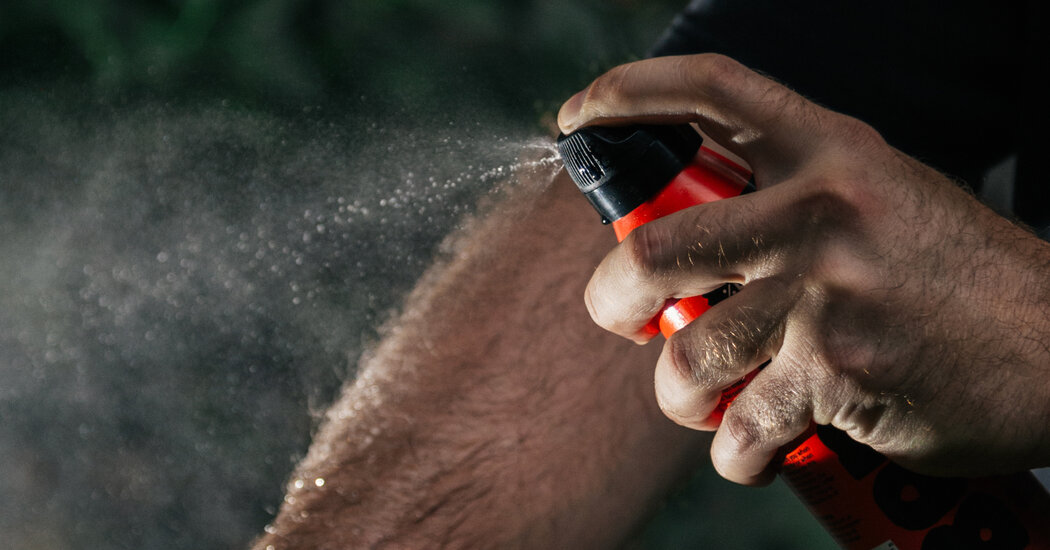Q: Everyone says that the DEET in bug spray is awful, but my own research seems to suggest that it’s well-tested and safe. Am I giving myself a little bit of cancer every time I use it?
A spritz of a DEET-containing bug spray might smell unpleasant, but when used correctly, DEET’s offensive odor might be its most harmful effect, said Dr. Joseph Kennedy, a physician and medical toxicologist at the University of Vermont Medical Center.
Still, there’s widespread concern that DEET might be potentially toxic or cause cancer, he said, with “so many misperceptions.”
Here is why people think DEET is bad for human health, and what we know about its safety.
How does DEET work?
Scientists aren’t exactly sure how DEET repels insects. But contrary to what many people may think, DEET is not an insecticide, Dr. Kennedy said. It doesn’t kill mosquitoes and is not poisonous to them. Instead, it simply deters them, likely with its noxious smell.
“The whole point of smelling unpleasant is you’re not the only one that thinks that,” Dr. Kennedy said. “Insects do, too,” he said. That includes other bugs like ticks, fleas and biting flies.
Another theory about how DEET works is that it masks certain human emissions, like carbon dioxide, which insects are normally attracted to, Dr. Kennedy said.
